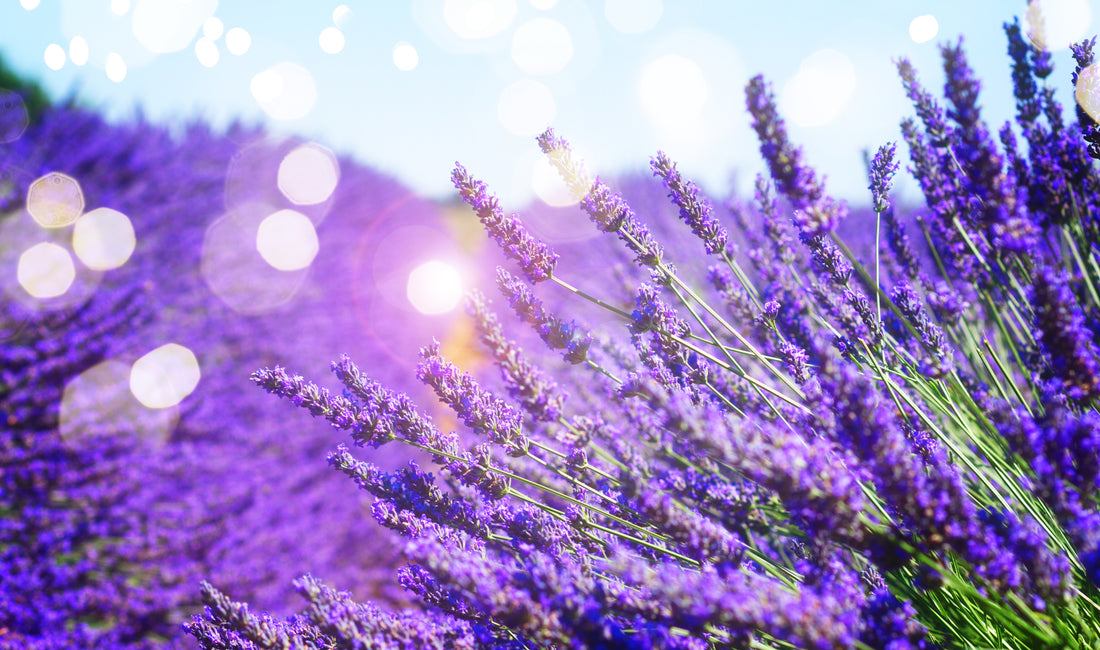Athletes are familiar with the rigorous demands of physical training, which can often lead to muscle soreness, inflammation, and stress. While conventional remedies are widely used, there is growing evidence for natural solutions like lavender, which offer a host of benefits, including the potential for reducing anxiety and promoting overall mental wellness.
Reducing Inflammation: Lavender's Evidence-Backed Benefits
Intense workouts can trigger inflammation, but lavender's anti-inflammatory properties are well-supported by science. For example, a study by Hajhashemi et al. (2003) found that the essential oil components of L. angustifolia have significant anti-inflammatory and analgesic effects. These properties make lavender oil an excellent choice for athletes looking to accelerate their recovery process.

Soothing Sore Muscles: Analgesic Effects of Lavender
Muscle soreness doesn't have to be a badge of your hard work. The analgesic properties of lavender, as highlighted in studies like Ghelardini et al. (2001), offer a natural remedy for pain relief, aiding athletes in their journey to a quicker recovery.
Promoting Relaxation and Mental Health: Lavender's Role in Alleviating Anxiety
The mental health of athletes is paramount, with anxiety disorders being notably prevalent and often undertreated, leading to various health risks. The DSM-5 outlines the significant impact of anxiety disorders, including physiological disturbances (Park and Kim, 2020; Schuyler, 2016). Traditional and herbal medicine, including the use of lavender, has become a popular intervention due to its effectiveness, tolerability, and low cost (Mamtani and Cimino, 2002).
Lavender, specifically the species Lavandula angustifolia, is a Mediterranean native with a strong presence in herbal medicine research. Its anxiolytic effects are well-documented, with systematic reviews and meta-analyses confirming its positive impact on anxiety (Karan, 2019). Moreover, lavender's ability to reduce peri-operative anxiety, as shown in patients undergoing dental procedures, further supports its role in managing anxiety in various settings (Karan, 2019).
Incorporating Lavender Into an Athlete's Routine
Given the extensive research on lavender, including its antimicrobial properties (Jianu et al., 2013) and potential to alleviate symptoms of depression (Nikfarjam et al., 2013), athletes can incorporate lavender in several ways:
- Aromatherapy: Using lavender essential oil for inhalation can provide calming effects and help manage anxiety.
- Topical Application: Applying diluted lavender oil to sore areas may reduce inflammation and pain.
- Baths and Soaks: Including lavender in baths can offer a full-body relaxation experience and aid in mental and physical recovery.
Conclusion
Lavender's multifaceted benefits make it an exceptional natural remedy for athletes. Not only does it support physical recovery by reducing inflammation and soothing sore muscles, but it also promotes mental health by alleviating anxiety and stress. By integrating lavender into their recovery routines, athletes can enjoy a holistic approach to their health and well-being.
References:
- Hajhashemi, V., Ghannadi, A., & Sharif, B. (2003). Anti-inflammatory and analgesic properties of the leaf extracts and essential oil of Lavandula angustifolia Mill. Journal of Ethnopharmacology, 89(1), 67-71.
- Ghelardini, C., Galeotti, N., Salvatore, G., & Mazzanti, G. (2001). Local anaesthetic activity of the essential oil of Lavandula angustifolia. Planta Medica, 67(6), 564-566.
- Karan, N. B. (2019). The effects of aromatherapy in relieving symptoms associated with the treatment of wisdom teeth. Aromatherapy Research, 10(4), 141-146.
- Jianu, C., Pop, G., Gruia, A. T., & Horhat, F. G. (2013). Chemical composition and antimicrobial activity of essential oils of Lavandula angustifolia from Romania. Central European Journal of Biology, 8(6), 600-608.
- Nikfarjam, M., Parvin, N., Assarzadegan, N., & Asghari, S. (2013). The effects of Lavandula angustifolia Mill infusion on depression in patients using citalopram: A comparison study. Iranian Red Crescent Medical Journal, 15(8), 734-739.
- Park, S. C., & Kim, Y. K. (2020). Anxiety Disorder. The Diagnosis and Statistical Manual of Mental Disorders, 5th Edition: DSM-5, 123-137
